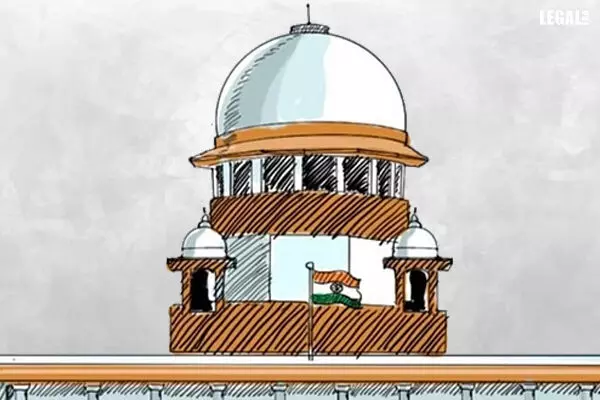Last Updated on September 13, 2023 by News Desk
written by Shagun Behal
Recently, the Supreme Court held that once a law is declared unconstitutional on the grounds of being violative of part 3 of the constitution, it would be considered void ab initio, stillborn and unenforceable since its inception.
“It is crystal clear that once a law is declared to be unconstitutional, being violative of Part III of the Constitution, then it would be held to be void ab initio, stillborn, unenforceable and non-Est in view of Article 13(2) of the Constitution and its interpretation by authoritative pronouncement. Thus, the declaration made by the constitution bench in the case of Subramanian Swamy will have a retrospective operation. Section 6A of the DSPE Act is held to be not in force from the date of its insertion i.e., September 11, 2003.” The court said.
The bench comprising Justice Sanjay Kishan Kaul, Justice Sanjiv Khanna, Justice Abhay S. Oka, Justice Vikram Nath, and Justice J.K Maheshwari 2014 judgment in Subramanian Swamy v. Union of India striking down Section 6A (1) of the Delhi Police Special Establishment Act, 1946, which mandated central government sanction for investigations involving certain government officials, would retrospectively apply to pending cases. Solicitor General Tushar Mehta appeared for the Appellant, ASG S.V. Raju appeared for the Union of India, and the Respondent himself appeared in person.
According to the live law report, the issue arose when the arrest was made under the Delhi Police Special Establishment Act, 1946 without prior sanction, which prompted a legal challenge on the grounds of violation of 6A which mandated the Central Bureau of Investigation (CBI) to take approval of the government before inquiring the officer of the rank of joint secretary in corruption case. The Delhi High Court ruled that since the Central Bureau of Investigation had initiated the investigation before the arrest, the exception contained in Sub-section (2) of Section 6A for spot arrests would not apply. Accordingly, the high court directed the agency to seek the central government’s approval for reinvestigation. CBI challenged this decision before the Supreme Court in 2007. During the pendency of the case, Section 6A (1) of the DSPE Act was held to be unconstitutional i.e., violative of Article 14 by a Constitution Bench judgment in the case of Subramanian Swamy.
The application of the said decision to the pending cases still remains and the Supreme Court has observed that the decision would have a retrospective effect.
The bench further added “Doctrine of eclipse does not apply in the present case, for Section 6A of the DSPE Act has been struck down as unconstitutional. There is no attempt to re-legislate this provision by removing the illegality resulting in unconstitutionality.”
Case title- Central Bureau of Investigation v. Dr RR Kishore

















